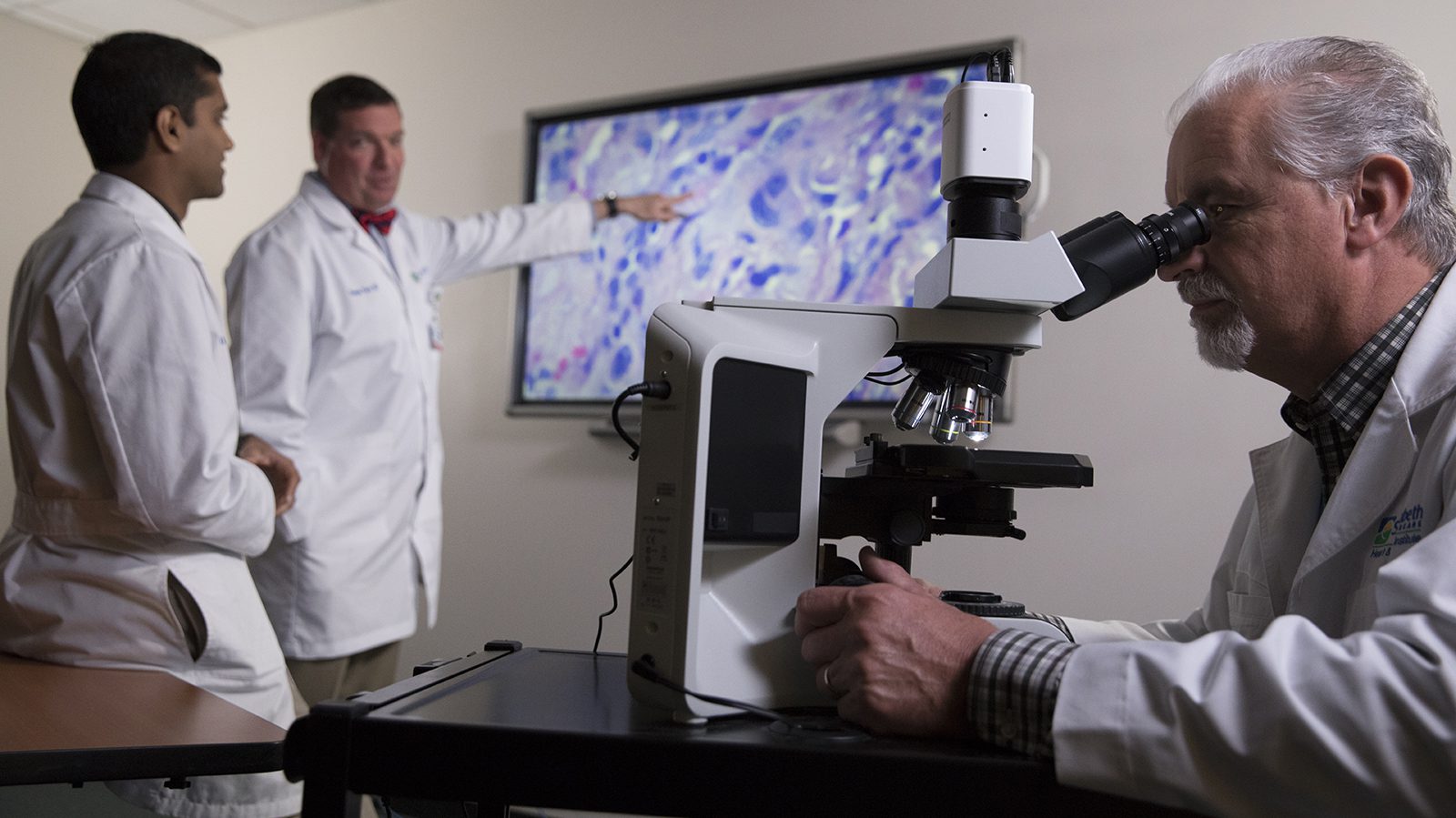Basal Cell Carcinoma
Basal cell carcinoma is the most common form of skin cancer. It starts in the upper layer of the skin called the epidermis. At first it may appear as a small white or flesh-colored area or bump. It usually grows slowly and it may bleed.
Most basal cell carcinomas occur on skin that is routinely exposed to sunlight or other ultraviolet radiation. They rarely spread or metastasize to other parts of the body.
At St. Elizabeth Healthcare, our physicians are highly skilled at diagnosing and treating basal cell carcinoma and can develop a care plan that specifically addresses your individual needs.
Basal Cell Carcinoma Symptoms
Basal cell carcinoma is a slow-growing cancer that may not look that different from unaffected skin.
Symptoms, in addition to other skin cancer symptoms include:

Make an appointment
For more information, please contact your oncologist or the Cancer Care Center at (859) 301-4000.
Basal Cell Carcinoma Diagnosis
The first step in diagnosing basal cell carcinoma is a physician exam. During the exam, your physician will look at the size, shape, color and texture of any areas on your skin that are concerning to you. If your doctor decides to investigate further, you may have a biopsy to confirm whether skin cancer cells are present.
Basal Cell Carcinoma Treatment
If you need treatment, you have many options at St. Elizabeth Healthcare. Our physicians will develop a plan that focuses firmly on you and your needs. Our goal is to help you achieve the highest level of health and well-being possible.
Your Cancer Care Team
The team includes medical oncologists specializing in immunotherapy and precision medicine, surgical oncologists, radiation oncologists, interventional radiologists, thoracic surgeons, pain management specialists, genetic counselors, pathologists, nutritionists, pharmacists, nurses and support staff. They work together to create a treatment plan that’s just right for you.


